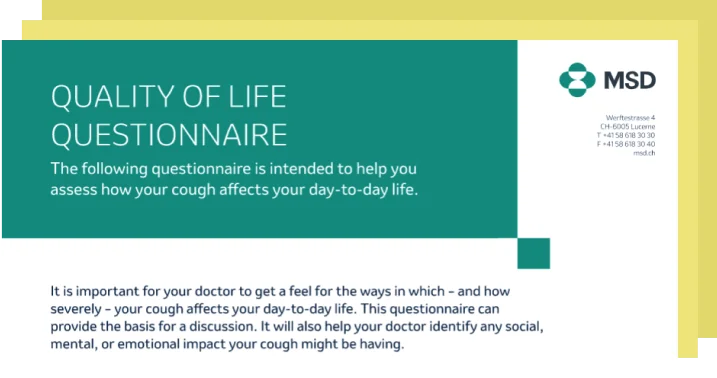Talking with your health
care provider
Working together with a team of health care providers or specialists may help you learn more about your cough.
Claudia, United States
Actual patient with chronic cough
Use this Patient-Doctor Discussion Guide to help you share your experiences with your health care provider and take a step toward understanding your cough.

You may have been treated for conditions commonly associated with chronic cough - such as asthma, nonasthmatic eosinophilic bronchitis (NAEB), gastroesophageal reflux disease (GERD), or upper airway cough syndrome (UACS) - but your coughing continued. Every time a condition is ruled out, it helps your health care provider get closer to understanding what may be contributing to your cough.
This means it could take time for your health care provider to find out whether underlying conditions may be contributing to your cough before considering refractory or unexplained chronic cough.
Your responses can help when having a discussion with your health care provider.

